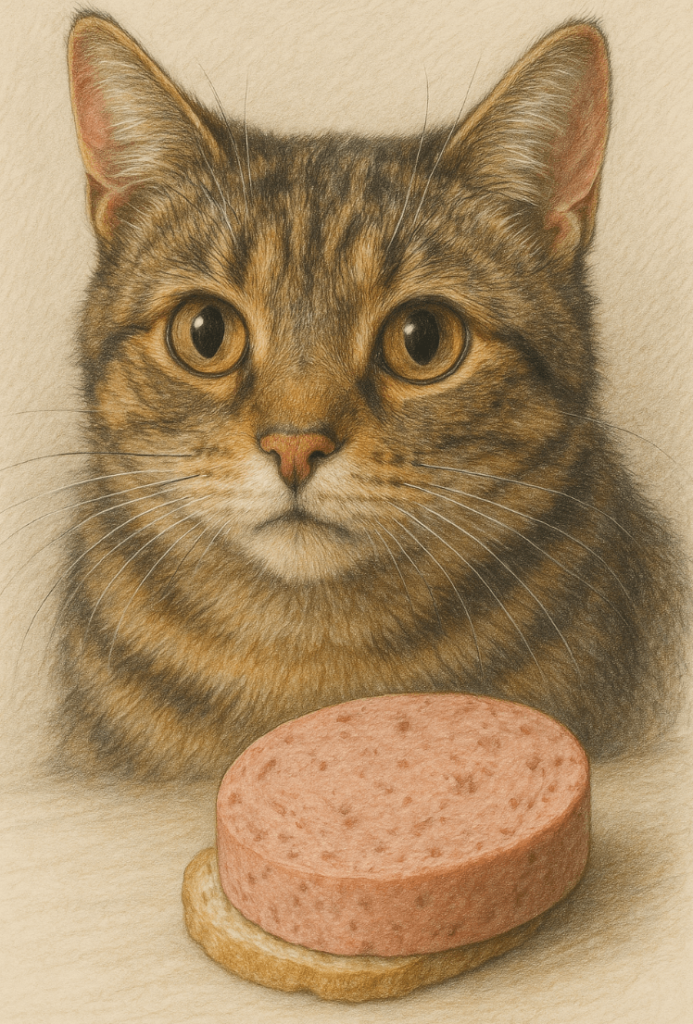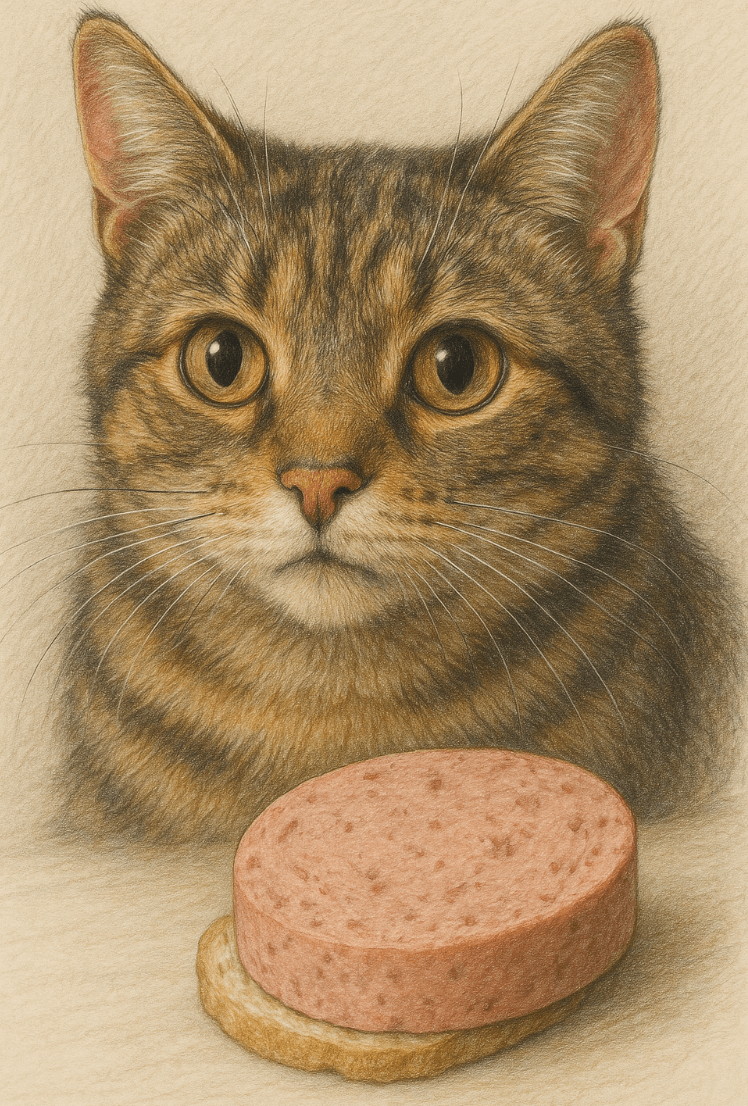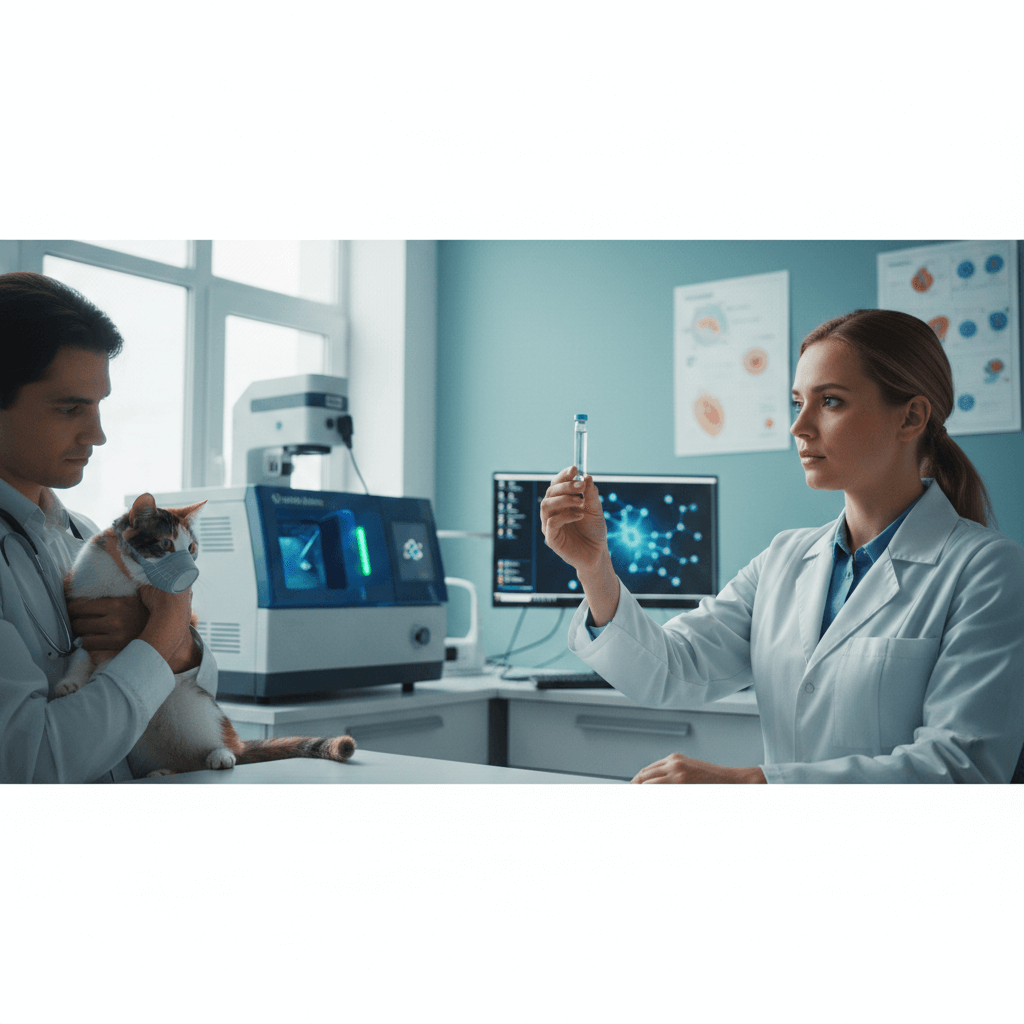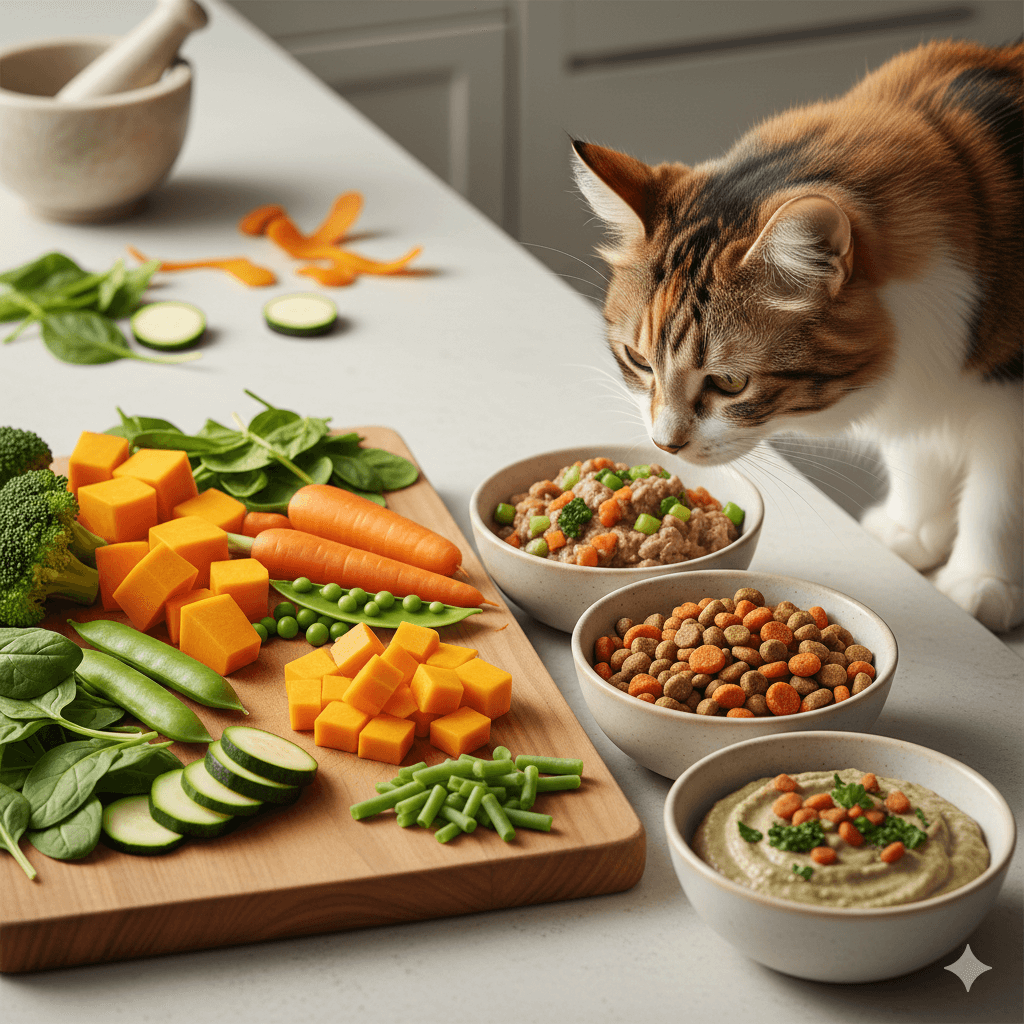Can Cats Eat Liverwurst?
Liverwurst, a type of sausage made from liver, is a savory treat enjoyed by many humans. But what about our feline friends? As obligate carnivores, cats thrive on animal-based proteins, and liverwurst might seem like a tempting snack to share. However, not all human foods are safe for cats, and liverwurst is no exception. While it contains some nutrients that could benefit your cat in small amounts, there are also potential risks to consider. In this blog post, we’ll explore whether cats can eat liverwurst, the benefits and dangers it poses, and how to safely incorporate it into their diet—if at all.
Potential Risks of Feeding Liverwurst to Cats
While liverwurst may smell enticing to your cat, it’s important to be aware of the risks associated with feeding it to them. Understanding these dangers will help you make an informed decision about whether to share this food.
High Fat Content:
Liverwurst is rich in fat, which can upset your cat’s digestive system and lead to vomiting or diarrhea.Excessive Sodium Levels:
The high salt content in liverwurst can cause dehydration or even sodium poisoning in large quantities.Additives and Preservatives:
Many brands of liverwurst contain artificial ingredients, spices, or preservatives that are harmful to cats.Risk of Pancreatitis:
A diet high in fatty foods like liverwurst increases the risk of pancreatitis, a painful and potentially life-threatening condition.Nutritional Imbalance:
Regularly feeding liverwurst can disrupt your cat’s balanced diet, leading to deficiencies or excesses in essential nutrients.
These risks highlight why moderation—or complete avoidance—is key when it comes to liverwurst and your cat’s health.
Benefits of Liverwurst for Cats (When Given in Moderation)
Despite the risks, liverwurst does offer some nutritional benefits that can be advantageous for cats if fed sparingly and in small amounts. Here’s what makes it appealing as an occasional treat.
Rich in Protein:
Liverwurst is packed with protein, which is essential for muscle development and overall energy in cats.Source of Vitamins A and B12:
These vitamins support your cat’s immune system, vision, and nervous system function.Iron Content:
Liverwurst contains iron, which helps prevent anemia and supports healthy red blood cell production.Palatability:
Its strong aroma and flavor often appeal to picky eaters, making it a useful tool for encouraging finicky cats to eat.Low Carbohydrates:
Unlike many processed human foods, liverwurst is low in carbs, aligning better with a cat’s natural dietary needs.
While these benefits exist, they must be weighed against the potential drawbacks to ensure your cat’s well-being.
Check this guide 👉Can Cats Eat Rabbits? Best 7 Expert Tips!
Check this guide 👉Can Cats Eat Slugs? Best 7 Expert Tips!
Check this guide 👉Can Cats Eat Acai? Best 7 Expert Tips!

Safe Alternatives to Liverwurst | Risks of Unsafe Treat Choices |
|---|---|
Plain cooked chicken or turkey | Processed meats with additives |
Small pieces of plain beef liver | Foods high in sodium or fat |
Freeze-dried meat treats | Spicy or seasoned sausages |
Bone broth (unsalted and strained) | Raw meats with bacterial contamination |
Cat-safe wet food supplements | Sugary or dairy-heavy snacks |
How to Safely Feed Liverwurst to Your Cat
If you decide to give your cat liverwurst, it’s crucial to do so responsibly to minimize risks. Follow these guidelines to ensure their safety.
Choose Plain Varieties:
Opt for liverwurst without added spices, garlic, onions, or preservatives, as these can be toxic to cats.Limit Portion Sizes:
Offer only a tiny piece—about the size of your thumbnail—as an occasional treat, not a regular part of their diet.Monitor for Reactions:
Watch for signs of digestive upset, such as vomiting or diarrhea, after introducing liverwurst.Avoid Frequent Feeding:
Limit liverwurst to once every few weeks to prevent nutrient imbalances or weight gain.Consult Your Veterinarian:
Always check with your vet before introducing new foods, especially if your cat has underlying health issues.
By following these steps, you can reduce the likelihood of adverse effects while allowing your cat to enjoy a rare indulgence.
Signs Your Cat May Be Struggling After Eating Liverwurst
Even with precautions, complications can arise if your cat consumes too much liverwurst or reacts poorly to it. Look out for these warning signs and act quickly if they occur.
Vomiting or Diarrhea:
These symptoms indicate digestive distress and may require immediate attention if severe or persistent.Lethargy or Weakness:
A lack of energy could signal sodium poisoning or another serious reaction.Increased Thirst or Urination:
Excessive drinking or urinating may point to kidney stress caused by high sodium levels.Loss of Appetite:
Refusal to eat can indicate gastrointestinal discomfort or toxicity.Swelling or Difficulty Breathing:
These signs suggest a severe allergic reaction or sodium overload, requiring emergency care.
Recognizing these symptoms early allows you to seek veterinary assistance promptly, ensuring your cat’s safety.
Common Mistakes to Avoid When Feeding Liverwurst
Feeding liverwurst to your cat requires careful consideration to avoid mistakes that could endanger their health. Here are some pitfalls to watch out for.
Offering Large Portions:
Giving too much liverwurst can overwhelm your cat’s digestive system and lead to obesity over time.Ignoring Ingredient Labels:
Failing to check for harmful additives or seasonings can expose your cat to toxic substances.Feeding Too Frequently:
Regularly including liverwurst in your cat’s diet can disrupt their nutritional balance and harm their health.Assuming All Brands Are Safe:
Not all liverwurst products are created equal; some contain higher levels of sodium or unhealthy ingredients.Neglecting Veterinary Advice:
Skipping a professional opinion can result in unknowingly harming your cat with inappropriate food choices.
Avoiding these mistakes ensures a safer experience for your cat.
Healthier Alternatives That Mimic the Appeal of Liverwurst
If you’re hesitant about feeding liverwurst, there are plenty of healthier alternatives that mimic its appeal without the associated risks.
Plain Cooked Liver:
Small amounts of plain, cooked liver provide similar nutrients without the added fats and salts found in liverwurst.Freeze-Dried Meat Treats:
These treats are protein-rich and free from harmful additives, making them a safer option for your cat.Cat-Specific Pâtés:
Commercially available pâtés designed for cats offer flavors cats love without compromising their health.Homemade Meat Purees:
Blend plain, cooked meats like chicken or turkey into a smooth paste for a homemade, cat-safe treat.Bone Broth Supplements:
Unsweetened, unseasoned bone broth provides hydration and nutrients without the risks of processed meats.
These alternatives allow you to cater to your cat’s cravings while keeping them safe.
Understanding Your Cat’s Natural Instincts Around Liverwurst
Cats are naturally drawn to liverwurst because of its strong smell and rich taste, which align with their evolutionary instincts. Understanding their behavior helps explain their fascination.
Attraction to Strong Smells:
Cats rely heavily on scent, and the potent aroma of liverwurst triggers their hunting and eating instincts.Craving Animal-Based Proteins:
As obligate carnivores, cats are biologically wired to seek out foods rich in animal proteins, like liverwurst.Exploration Through Taste:
Cats use their sense of taste to investigate new foods, and liverwurst’s unique flavor makes it intriguing.Seeking Variety in Diet:
Even though cats are creatures of habit, they occasionally crave variety, and liverwurst satisfies that desire.Association with Positive Experiences:
If introduced positively, liverwurst can become a comforting treat tied to bonding moments with their owner.
By recognizing these behaviors, you can better address your cat’s needs in a safe and controlled manner.
Frequently Asked Questions About Cats and Liverwurst
Is liverwurst toxic to cats?
Not inherently toxic, but its high fat, sodium, and additive content can harm cats if fed excessively.
Can kittens eat liverwurst?
Kittens have sensitive digestive systems, so it’s best to avoid feeding them liverwurst altogether.
What should I do if my cat eats too much liverwurst?
Contact your veterinarian immediately, especially if they show signs of illness.
Are there healthier alternatives to liverwurst?
Yes, plain cooked meats like chicken or turkey are safer and more nutritious options.
How often can I give my cat liverwurst?
At most, once every few weeks in very small amounts—and only if approved by your vet.
Prioritizing Your Cat’s Health When It Comes to Liverwurst
Liverwurst may seem like a tasty treat for your cat, but its potential risks outweigh the benefits if not handled carefully. While it offers some nutritional value, the high fat, sodium, and additive content make it a less-than-ideal choice for regular consumption. By understanding the pros and cons, choosing safer alternatives, and consulting your veterinarian, you can ensure your cat stays healthy and happy. Remember, your feline friend relies on you to make the best dietary choices for them—so always prioritize their well-being above all else.
Can a Cat Be Tested for Rabies? Best 7 Expert Tips! – Learn if testing is possible, understand the process, and discover prevention tips to keep your cat safe from rabies.
Can a Dog Be Tested for Rabies? Best 7 Expert Tips! – Learn how rabies testing works, why it’s critical, and what every dog owner needs to know.
Best Vegetables for Cat Food: Best 7 Expert Tips! – Discover safe, nutritious veggies to boost your cat’s diet, support digestion, and enhance overall health naturally.
Best Vegetables for Dog Food: Best 7 Expert Tips! – Discover safe, nutritious veggies to boost your dog’s diet, support digestion, and enhance overall health naturally.





